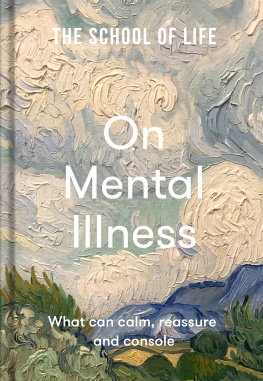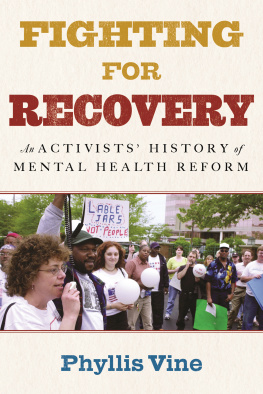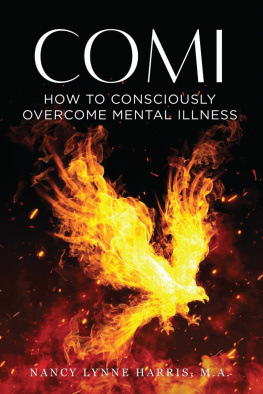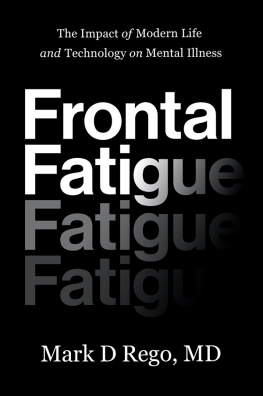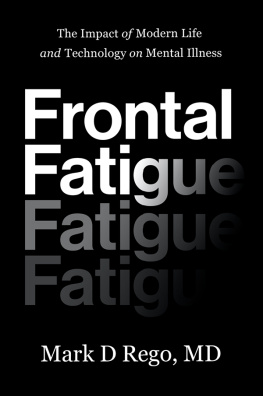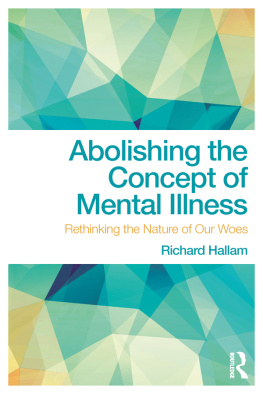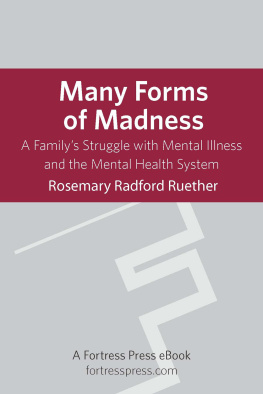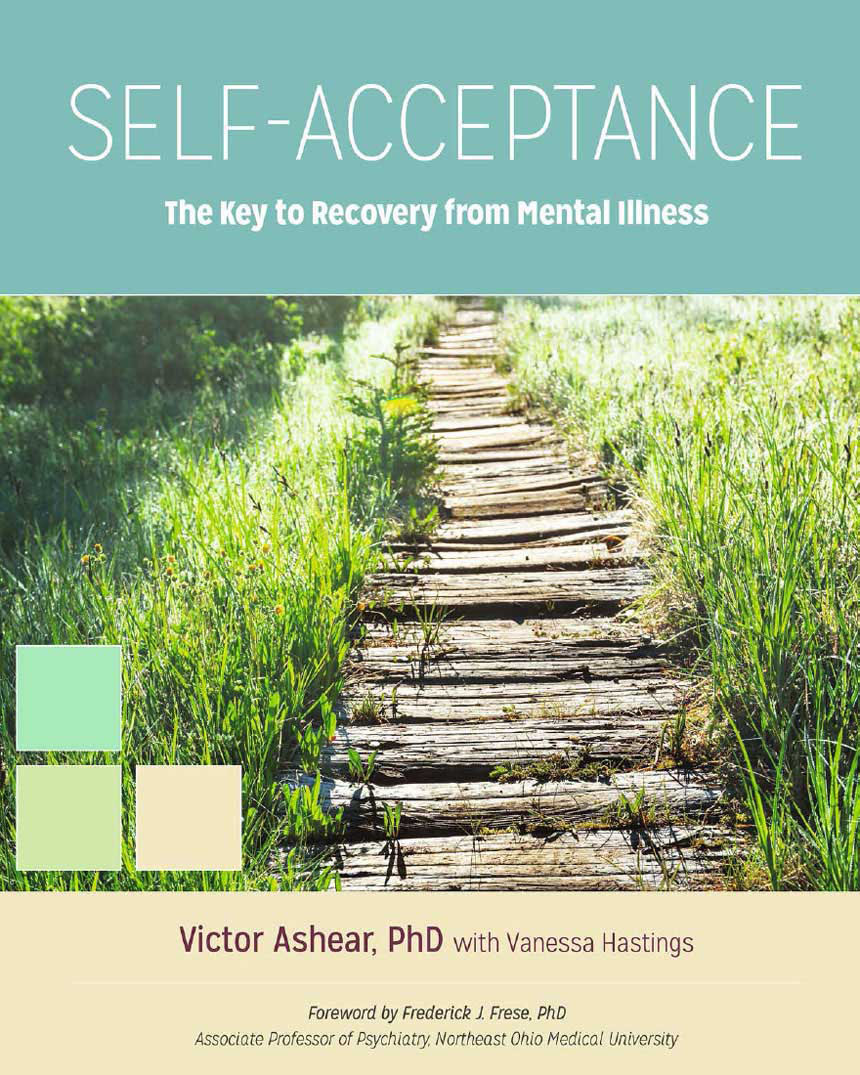

Central Recovery Press (CRP) is committed to publishing exceptional materials addressing addiction treatment, recovery, and behavioral healthcare topics, including original and quality books, audio/visual communications, and web-based new media. Through a diverse selection of titles, we seek to contribute a broad range of unique resources for professionals, recovering individuals and their families, and the general public.
For more information, visit www.centralrecoverypress.com.
2015 by Victor Ashear
All rights reserved. Published 2015.
No part of this publication may be reproduced, stored in a retrieval system, or transmitted in any form or by any means, electronic, mechanical, photocopying, recording, or otherwise, without the written permission of the publisher.
Publisher: Central Recovery Press
3321 N. Buffalo Drive
Las Vegas, NV 89129
20 19 18 17 16 15 1 2 3 4 5
ISBN: 978-1-937612-92-4 (e-book)
I Am Me from Self-Esteem by Virginia M. Satir. Copyright 1970, 1975, 2001 by Virginia Satir. Used by permission of Celestial Arts, an imprint of the Crown Publishing Group, a division of Penguin Random House LLC. All rights reserved.
How I Perceive and Manage My Illness by Esso Leete. Reprinted with permission from Schizophrenia Bulletin.
Photo of Victor Ashear by Janet Ashear. Used with permission.
Photo of Vanessa Hastings by Marcy Dorsey. Used with permission.
Publishers Note: This book contains general information about how acceptance of the self and the effects of mental illness can help facilitate recovery from schizophrenia, bipolar disorder, or major depression. The information is not medical advice and should not be treated as such.
Central Recovery Press makes no representations or warranties in relation to the medical information in this book; this book is not an alternative to medical advice from your doctor or other professional healthcare provider. If you have any specific questions about any medical matter you should consult your doctor or other professional healthcare provider. If you think you or someone close to you may be suffering from any medical condition, you should seek immediate medical attention. You should never delay seeking medical advice, disregard medical advice, or discontinue medical treatment because of information in this or any book.
Central Recovery Press books represent the experiences of their authors only. Every effort has been made to ensure that events, institutions, and statistics presented in our books as facts are accurate and up-to-date.
Cover design by David Hardy
Interior design by Deb Tremper, Six Penny Graphics
The feeling of inferiority rules the mental life and can be clearly recognized in the sense of incompleteness and unfulfillment, and in the uninterrupted struggle both of individuals and humanity.
Alfred Adler
The most terrifying thing is to accept oneself completely.
Carl G. Jung

Table of Contents
Guide
Table of Contents
I experienced my first psychotic break in the mid-1960s. During the next few years I was hospitalized several times and, in the summer of 1968, I was picked up by the police in the street in Columbus, Ohio, and taken to a nearby state psychiatric hospital. Before long I was brought before a probate court, where I was apprised that I had schizophrenia and was being judicially committed as an insane person. I was further informed that schizophrenia is a deteriorating brain disease and that from time to time while I might appear to recover, people with schizophrenia virtually never recover. I was told that I could expect my condition to deteriorate with time, and I would probably spend the rest of my life under the care of the state psychiatric hospital system.
I later learnedthanks to the thinking of Emil Kraepelin, the German psychiatrist who more than 100 years ago first described the condition that came to be known as schizophreniathat psychiatric professionals generally believed for most of the twentieth century that people diagnosed with schizophrenia would never recover.
Fortunately, our understanding of serious psychiatric conditions has improved greatly during the past few decades. We now have solid evidence that many, perhaps even most, people diagnosed with serious mental illness can, in fact, recover, at least to some degree. This understanding became particularly widespread with the landmark publication of Mental Health: A Report of the Surgeon General in 1999 and the Presidents New Freedom Commission on Mental Healths Achieving the Promise: Transforming Mental Health Care in America in 2003. The latter documents primary recommendation was to revolutionize the mental health system of the United States, with recovery as the primary goal of the new system. Subsequently, the federal governments Substance Abuse and Mental Health Administration (SAMHSA) took the lead in encouraging mental health professionals throughout the country to engage in practices oriented toward recovery.
The term recovery can, of course, have different meanings to different people. Although some mental health professionals and advocates now believe that virtually anyone diagnosed with schizophrenia can totally recover, most tend to take a more measured approach to recovery. Most believe the majority of people with serious mental illness can make significant improvements with treatment but will continue to experience at least residual symptoms and remain vulnerable to episodic periods of psychosis.
This fairly recent optimism concerning the likelihood of recovery for people with serious mental illness has given rise to a variety of recovery-oriented approaches to caring for those of us in this population. Overall, the recovery approach emphasizes independence, autonomy, and responsibility on the part of the person with serious mental illness.
Despite these messages from national leaders, it has been difficult to overcome mental health professionals pessimism concerning recovery for seriously mentally ill people and the tendency to marginalize them. Indeed, relatively few professionals, including psychologists, have taken a serious interest in developing and/or providing recovery-oriented services for us.
Perhaps it is not surprising that some of the first mental health professionals to forge specific recovery-oriented approaches to care received treatment for serious mental illness at one time and are now themselves in recovery. Patricia Deegan, PhD, a psychologist who is in recovery from schizophrenia, has developed several recovery-oriented approaches. Her work on developing shared decision making has been particularly impressive. Beth Baxter, MD, who is also in recovery from schizophrenia, worked with Sita Diehl to develop the BRIDGES program, in which recovering people provide guidance to other people in recovery. Dan Fisher, MD, PhD, yet another psychiatrist who has been diagnosed with and hospitalized for schizophrenia, has developed a recovery approach that he calls Emotional CPR (eCPR). Information about Dr. Fishers initiatives is available from the National Empowerment Center at http://www.power2u.org.


